July 2024
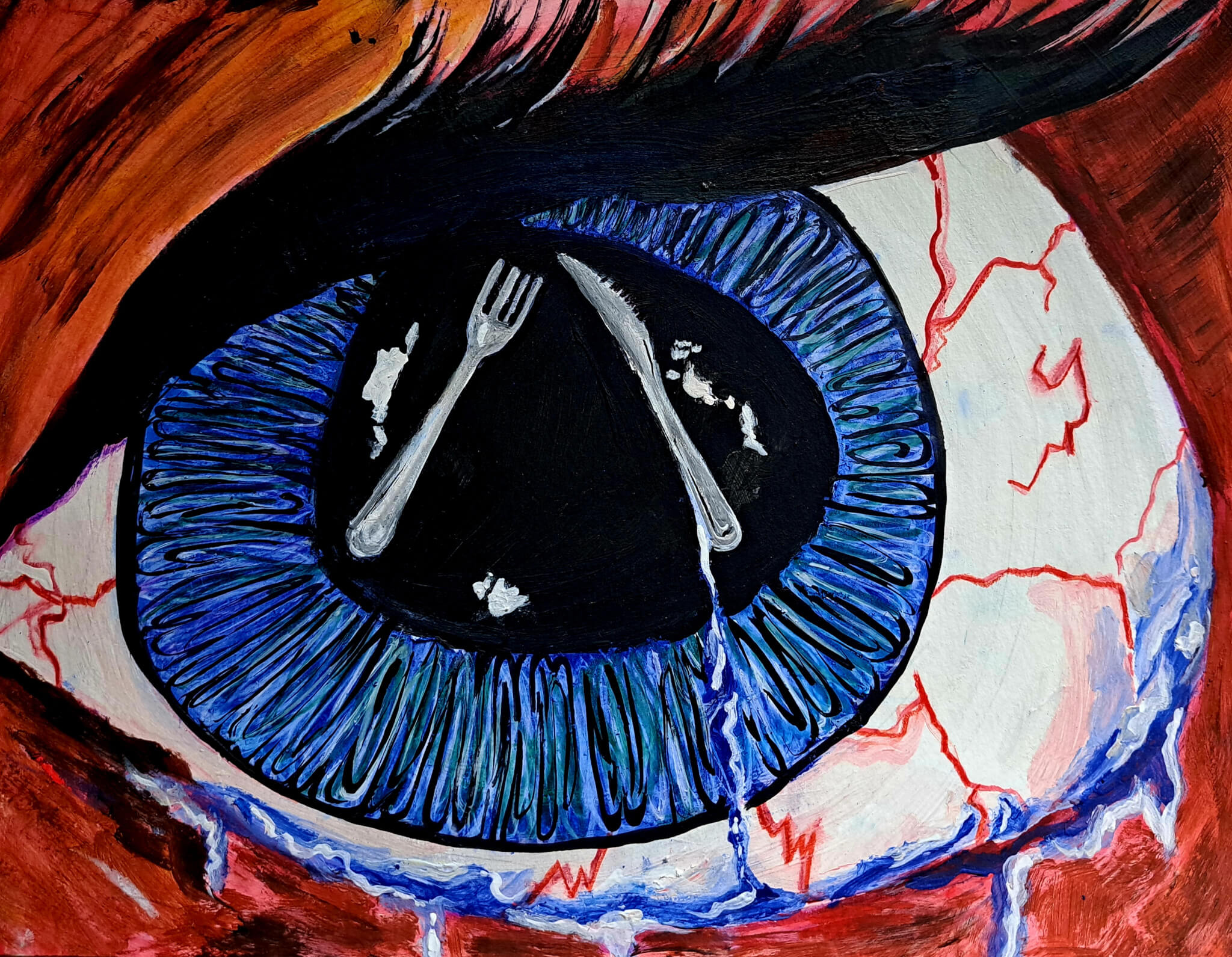
Eating Fear: The cortisol connection in animal consumption
Vegan Society of Canada News, July 19th 2024
There’s a lot of ground to cover to investigate the various detrimental effects to humans from eating meat due to the fear those animals experience in slaughterhouses, but as is often the case, there is still much we don’t know. Fear itself is hard to measure, so to quantify fear in animals perhaps the best proxy is cortisol...
June 2024

Prostate cancer update
Vegan Society of Canada News, June 20th 2024
Scientifically, it is now clear that animal agriculture has various negative impacts on our health and society at large. However, just like a variety of predominantly lifestyle diseases like lung cancer and diabetes, it continues to afflict us despite the large body of scientific evidence...
April 2023

Perils of plastic pollution
Vegan Society of Canada News, April 14th 2023
We’ve known for a while that plastics are ubiquitous. They are part of pretty much all consumer products made in the last decades and have been polluting our oceans, lands and foods since. We are now investigating how ubiquitous plastics are...
November 2022

Alzheimer's disease, dementia and the cholesterol link
Vegan Society of Canada News, November 18th 2022
We have known the health risks of cholesterol for a while. However, something that is less well known is the link between a diet high in animal foods and all causes of dementia, including Alzheimer’s disease...
April 2022

Methionine: A double-edged sword
Vegan Society of Canada News, April 18th 2022
We have discussed many times in the past the health benefits of a vegan lifestyle. Unfortunately, as we discussed in our article about superbugs, our current economic system fails when it comes to producing cures that are not profitable, such as antibiotics. This also applies to the health benefits of a vegan lifestyle, which unlike traditional medicine is hard to monetize for businesses...
March 2022

Introducing our mental health support
Vegan Society of Canada News, March 25th 2022
The Vegan Support Line is a free chat and email based mental health support line. All our volunteer responders self-identify as vegans and have work experience in the field of mental health, clinical health, or social work. It’s open to anyone who would benefit from emotional and mental support and prefers to chat with those who self-identify as vegans, whether or not it is related to veganism...
February 2022

Food plate for the planet
Vegan Society of Canada News, February 17th 2022
For far too long, we had to contend with food plate diagrams that encourage the exploitation of animals. The latest version of the food guide from our government is certainly progressing in the right direction, but as climate incidents have shown us too often, we no longer have the luxury of time...
January 2021
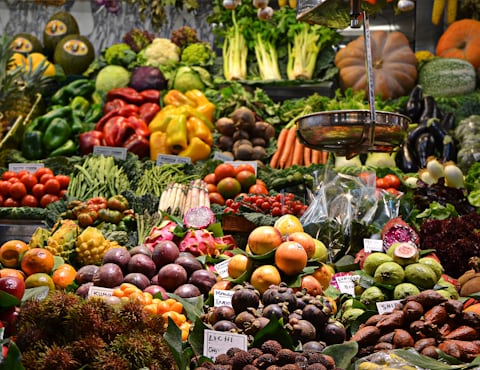
Plant-based labels are changing
Vegan Society of Canada News, January 21st 2021
We haven’t used the term “plant-based” as a broad substitute for various concepts in veganism for a while. Instead, while we still use plant as an adjective, we use phrases like “food suitable for vegans” or “this food is vegan certifiable”...
December 2020
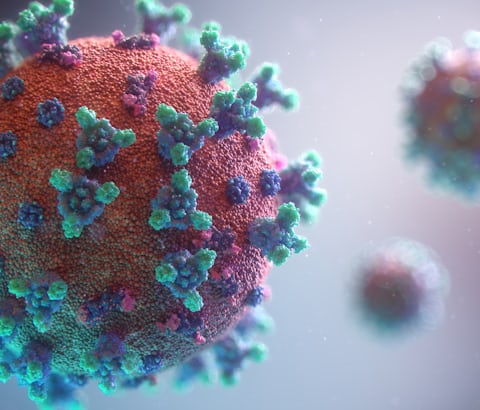
Coronavirus mutation in Danish minks
Vegan Society of Canada News, December 4th 2020
On November 4th, the Danish government announced, then later retracted, that it will kill all minks being raised on farms, about 17 millions individuals, due to a very serious mutation of the virus in minks that potentially puts the effectiveness of vaccines currently being developed at risk...
September 2020

Celebrate World Egg-Free Day on October 9th
Vegan Society of Canada News, September 23rd 2020
Mark October 9th on your calendars and get ready to join us and vegans across the world as we celebrate veganism on World Egg-Free Day...

Don’t get cracking: How egg lobbies skew research
Vegan Society of Canada News, September 23rd 2020
As a prelude to World Egg-Free Day on October 9th, 2020, here is the latest research on the health concerns of egg consumption...
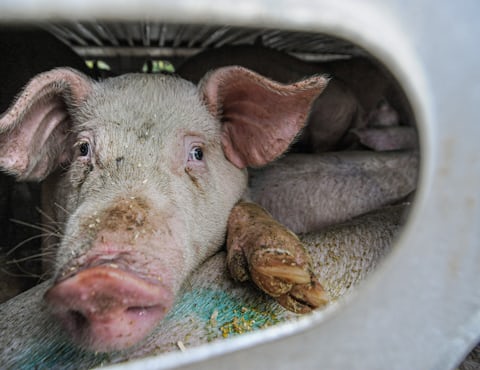
Slaughterhouses and COVID-19
Vegan Society of Canada News, September 11th 2020
As we do our part by wearing masks and physically distancing, experts and government agencies are trying to contain and control COVID-19, while the cost is spiralling out of control. But it seems we need to be reminded that, most regrettably, we brought this upon ourselves...
August 2020

Are we courting another pandemic?
Vegan Society of Canada News, August 12th 2020
As we do our part by wearing masks and physically distancing, experts and government agencies are trying to contain and control COVID-19, while the cost is spiralling out of control. But it seems we need to be reminded that, most regrettably, we brought this upon ourselves...
July 2020
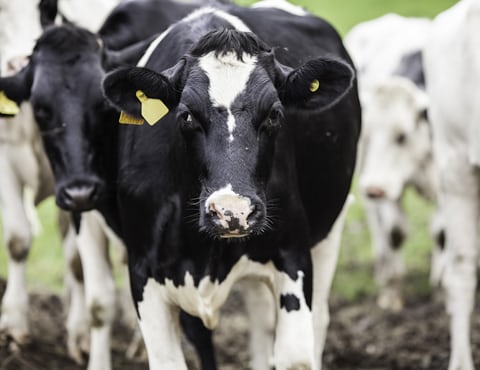
The dairy industry’s toll on our planet
Vegan Society of Canada News, July 7th 2020
As we have shared before, dairy is problematic for many reasons, including our health as well as environmental and ethical concerns. The latest report by the Institute for Agriculture and Trade Policy (IATP) provides us with an update of the dairy industry’s toll on our planet...
May 2020

Our review of new research into vitamin B12
Vegan Society of Canada News, May 16th 2020
In the last few years, there has been interesting new research shedding light on the contentious issues surrounding vitamin B12. In light of this, we are updating our recommendations and remind everyone who self-identifies as vegans to supplement and monitor their B12 levels...
April 2020

The dairy and breast cancer connection
Vegan Society of Canada News, April 14th 2020
A new study, funded by the World Cancer Research Fund (WCRF) and the National Cancer Institute at the National Institute of Health (NIH), finally sheds some light on the relation between dairy and breast cancer...
February 2020

Motivation: Preventing future pandemics
Vegan Society of Canada News, February 14th 2020
Some effects of animal agriculture get very little attention. And while they may not lead to mass extinction like our climate emergency, they have caused millions of deaths over the centuries, which will continue if the status quo prevails...
January 2020

Just the facts: How much calcium do we really need?
Vegan Society of Canada News, January 23rd 2020
We have explored this question in our article titled “Demystifying our inflated calcium intake recommendations”. In summary, we recommend at least 400mg/day for people on a 100% plant-based diet whose sodium intake as at or below Health Canada’s recommendation of 1500mg/day. Otherwise, we recommend 500-700mg/day.
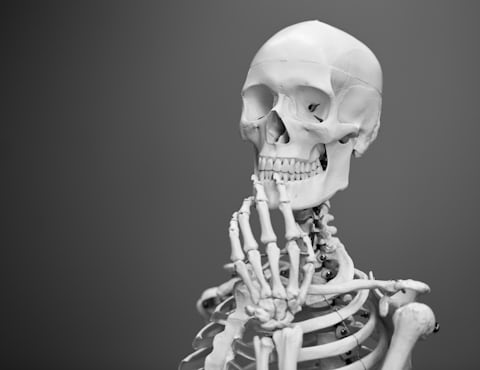
Demystifying our inflated calcium intake recommendations
Vegan Society of Canada News, January 23rd 2020
Let’s continue to explore the broad impact of animal agriculture influence by looking at the inflated Canadian calcium recommendation. There is a lot of scientific evidence to go through and there is still more we do not know...
November 2019
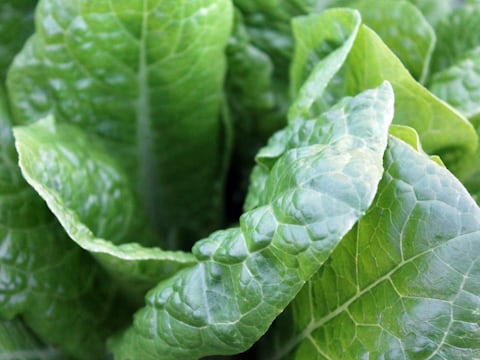
Another romaine lettuce E. coli outbreak
Vegan Society of Canada News, November 23rd 2019
Unfortunately, it seems animal agriculture once again cross-contaminated some romaine lettuce. The Public Health Agency of Canada recommends that people avoid any romaine lettuce harvested from the Salinas, California growing region in the U.S...
August 2019

A review of the scientific evidence on the health risks of dairy products
Vegan Society of Canada News, August 3rd 2019
When the new Canadian food guide made water their beverage of choice, we were glad that scientific evidence and common sense prevailed over profit and disease. Let’s review the current scientific evidence with regard to the health risks of dairy...
July 2019

A plant diet increases many biomarkers indicative of good health
Vegan Society of Canada News, July 6th 2019
There are a barrage of research being published constantly and much of it has various problems from simply being early research that needs broader validation to having some strong conflict of interest. Today we will go over one of those papers that shows some promise but that we would normally skip...
March 2019
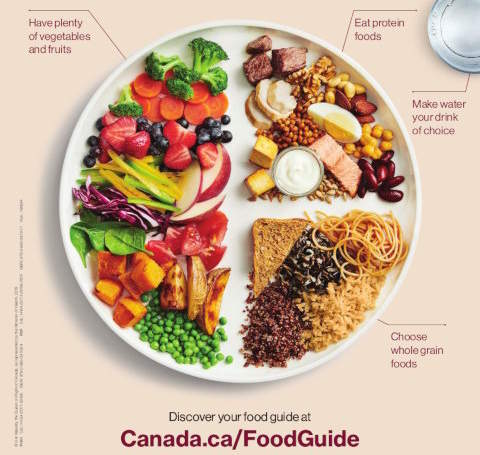
Review of the new Health Canada food guide
Vegan Society of Canada News, March 5th 2019
After doing some more extensive research, our initial conclusion on the new Canadian food guide is largely unchanged.
However, while crunching numbers, we came upon some interesting results with regards to similarities between the new Canadian food guide and the EAT-Lancet planetary health diet...
January 2019

The new Health Canada food guide
Vegan Society of Canada News, January 23rd 2019
After years of reviewing all the scientific evidences, Health Canada released their new food guide. We will have more extensive coverage in the weeks to come but for now we will like to share major changes that are in the new guide. One of such change is that Health Canada recommends our plates be proportionally filled with at least 88% of plant-based foods.
In addition, to make sure nobody ignore the science and is tempted to get stuck in the past Health Canada makes it clear: The drink of choice is water...

EAT-Lancet report: A discussion of the shift to a plant-based world
Vegan Society of Canada News, January 19th 2019
The new 'planetary health diet' released by the EAT-Lancet commission is in many ways similar to the previously released Greenpeace’s report, in this article will explore the many implications...
December 2018

Deciphering labels: We eat meat without knowing
Vegan Society of Canada News, December 3rd 2018
In the context of our recent update on Nestle, we wanted to discuss more broadly the difficulty we face in deciphering products on a daily basis...
November 2018

Another romaine lettuce outbreak in Canada
Vegan Society of Canada News, November 21st 2018
Unfortunately, it seems animal agriculture once again cross-contaminated some romaine lettuce. The Public Health Agency of Canada recommend that people in Ontario and Quebec avoid eating romaine lettuce for the time being...
September 2018
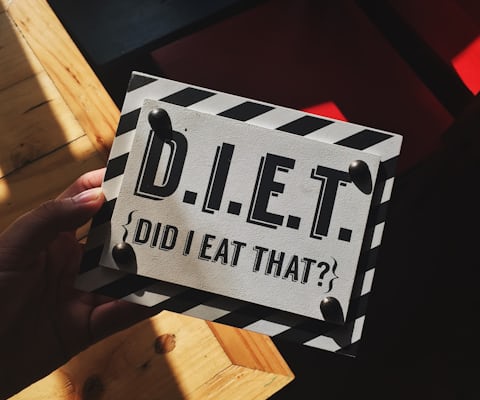
Balanced plant-based diet one of the healthiest
Vegan Society of Canada News, September 28th 2018
It should now be clear that a simple balanced plant-based diet is one of the healthiest diet. In case there is still some doubt one of the most comprehensive study just published talks about the dangers of low or high carbohydrate diet and the benefits of plant-based foods...

Just the facts: Alcohol, health and which ones are not vegan certifiable
Vegan Society of Canada News, September 14th 2018
It may come as a surprise that the top wines sold in Canada are not vegan certifiable, and no amount of alcohol consumption is safe...
August 2018

Just the facts: Vitamin B12
Vegan Society of Canada News, August 12th 2018
We wanted to discuss vitamin B12 and dispel the wrong information we often see being repeated...

New Gallup polls on veganism
Vegan Society of Canada News, August 7th 2018
A new Gallup poll should help lay to rest, as we have discussed before, the misconception that following a diet compatible with the vegan philosophy is only for the rich and famous
Americans earning less than $30,000 annually are more likely to identify as vegetarian. Nine percent of this group say they are vegetarian, a higher percentage than is true of Americans in the two higher-income groups. Differences in levels of veganism among these three groups are not statistically significant.
Unfortunately it also confirm once more that the rate of veganism has been stagnant for a long time.
July 2018

Strengthening our motivation: Superbugs and antibiotic resistance crisis
Vegan Society of Canada News, July 17th 2018
In our series aimed at strengthening our motivation we will now take a closer look at the antibiotics crisis. It may not seem like it but we are on the verge of being thrown back to the dark ages of medicine...
June 2018

Strengthening our motivation: Health
Vegan Society of Canada News, June 28th 2018
In our series aimed at strengthening our motivation we will start with health reasons: Going vegan is the 2nd best thing someone can do to prevent cancer after not smoking...
March 2018
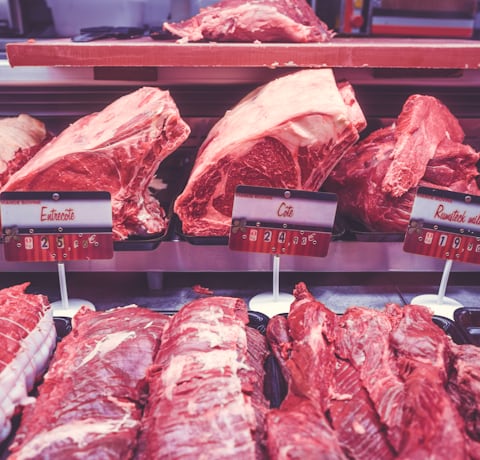
Stop spreading cancer
Vegan Society of Canada News, March 15th 2018
We would like to renew our call to stop the advertising of processed and red meat. While surprisingly legal this practice is highly unethical. Nevertheless, it is surprising that we must plead to stop encouraging people from getting cancer by advertising the consumption of level 1 and level 2 carcinogenic substances. Let’s not wait until this become illegal to change, we will work with any business to replace their cancer spreading advertisement to vegan flyers and inserts, contact us to make the change today.
February 2018

Resolution urges OEHHA to add cancer-causing processed meat to prop 65
Physicians Committee for Responsible Medicine, February 14th 2018
We welcome the proposed resolution to label processed meat as the dangerous level 1 carcinogenic substance that it is. In addition, while we do not have such regulations in Canada we would ask that producers adopt this voluntary labeling measures. Furthermore, we ask that grocers do the ethical thing as well and stop encouraging people to get cancer by advertising processed meat in their flyers. Profits should not come before lives.